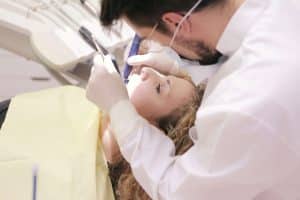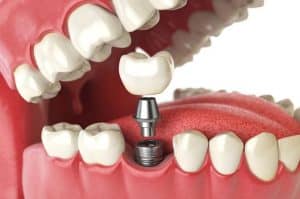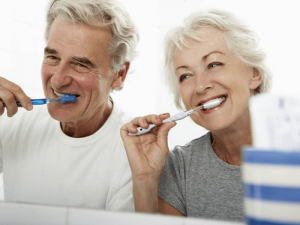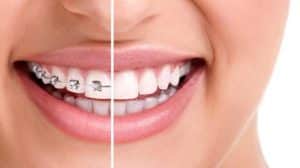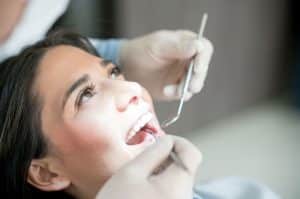You can feel at rest, at ease, and tranquil throughout dental operations using Sedation Dentistry. You are still technically awake but feel very relaxed due to the mild sedation dose. Because it induces a brief amnesic (forgetful) state during which you become less sensitive to pain without losing awareness, it is sometimes referred to as “conscious sedation dentistry” or “twilight sleep”.
Who Needs Sedation Dentistry?
All patients, even young kids, benefit from Sedation Dentistry. Aichmophobia, severe teeth sensitivity, feelings of claustrophobia in the dental chair, decreased sensitivity to local anaesthetic, trouble regulating movement, special needs, dental anxiety, fear of going to the dentist, abnormally sensitive gag reflex, fear of needles (including physical, cognitive or behavioral). Only if your veneers need to extend below the gumline—a delicate area—will you need a sedative.
You might ask for sedation if you have anxiety during dental treatment due to a dental phobia. You can consult with the dentists at our offices for more information about sedation according to your process.
Types of Sedation That are Used in Dentistry
Oral sedation dentistry comes in different levels depending on your requirements. The level of anxiety, the length of your surgery, your medical history, and your personal preferences are all important variables. Nitrous oxide, oral conscious sedation, and IV Sedation Dentistry (intravenous) are the three most used Sedation Dentistry techniques.
Is General Anesthesia Ever Used in Dentistry?
Yes, on occasion. General anaesthesia may be required at a hospital or ambulatory surgery facility when treating young children, persons with special needs, or patients with significant dental anxiety. Unconscious sedation is general anaesthesia. Your dentist needs to have completed extensive, specialized training to administer general anaesthesia. An anesthesiologist typically administers this kind of anaesthesia. For some procedures, A local anaesthetic will be administered to the patient prior to the dental crown treatment to minimize pain.
The Procedure of Sedation Dentistry
You will meet the anesthesiologist in the treatment room, where they will talk with you about your wishes for anesthesia. Usually, adult patients are okey with moderate sedation and do not want severe sedation for the surgery. In the end, your dentist will want you to be comfortable and have the experience you want, but safety comes first. You will be informed if there are any concerns about your capacity to receive anesthetic safely during the treatment.
Before the Operation
You and your dentist will go over your sedation choices during your initial consultation. Your medical background will be discussed, and you’ll be questioned about any medications or dietary supplements you might be using. After gathering all the necessary facts, they will create sedative recommendations based on your particular needs.
Typically, you should wait at least six hours before your dental appointment before eating or drinking anything. You should regularly take any medications recommended to you unless your dentist instructs you otherwise.
Be sure to tell your dentist if you’re using any blood thinners. Prior to your treatment, they might advise you to skip certain prescriptions for a few days.
During Sedation Dentistry Operation
Your dentist delivers sedatives to you before the treatment begins. Even so, your dentist will still provide local anaesthetic to numb your teeth and gums; however, they will normally do so after you have already felt some degree of comfort from the sedatives.
After the Operation
Unless you choose nitrous oxide as your sedative option, you’ll need a reliable friend or family member to transport you home following your appointment. You should return home immediately and take it easy until the sedation wears off.
Never rideshare or take a taxi after receiving sedation for dental work. You’ll need someone you know and trust to assist you. Your driver should check that you are sleeping soundly in bed or on your couch before departing.
Advantages and Disadvantages of Sedation Dentistry
Thanks to Sedation Dentistry, you can feel more at ease and relaxed during dental operations, which also helps you overcome fears and phobias. Fewer appointments may be necessary as a result of the dentist’s ability to work more quickly when you’re sedated. Finally, a lot of people avoid visiting the dentist altogether due to their dental phobia. Thanks to Sedation Dentistry, you can get the treatment you require and deserve by feeling more at ease.
When given by a qualified healthcare professional, Sedation Dentistry is normally safe. There is a slight possibility of difficulties, though. Possible immediate dangers include:
- Persistent sleepiness
- The effects of oral sedation medications might be tricky to predict.
- Mouth ache (xerostomia)
- Vomiting and nauseous
- Headaches
- IV-related bruises
- Additionally, it might be challenging to predict how oral sedation medications would behave. A rare occurrence is an allergic reaction in people. These problems can be resolved with some medications
Recovery Time
Recovery times are variable . It depends on the kind of sedation you select and how the drugs affect your body. People who use nitrous oxide typically feel better within 15 to 30 minutes and can go home on their own after their appointment. It typically takes 24 hours for oral conscious sedation or intravenous sedative to fully recover.
You can read our previous article from https://smileteamturkey.com/blog/white-spots-on-teeth-reasons-and-treatment/.
